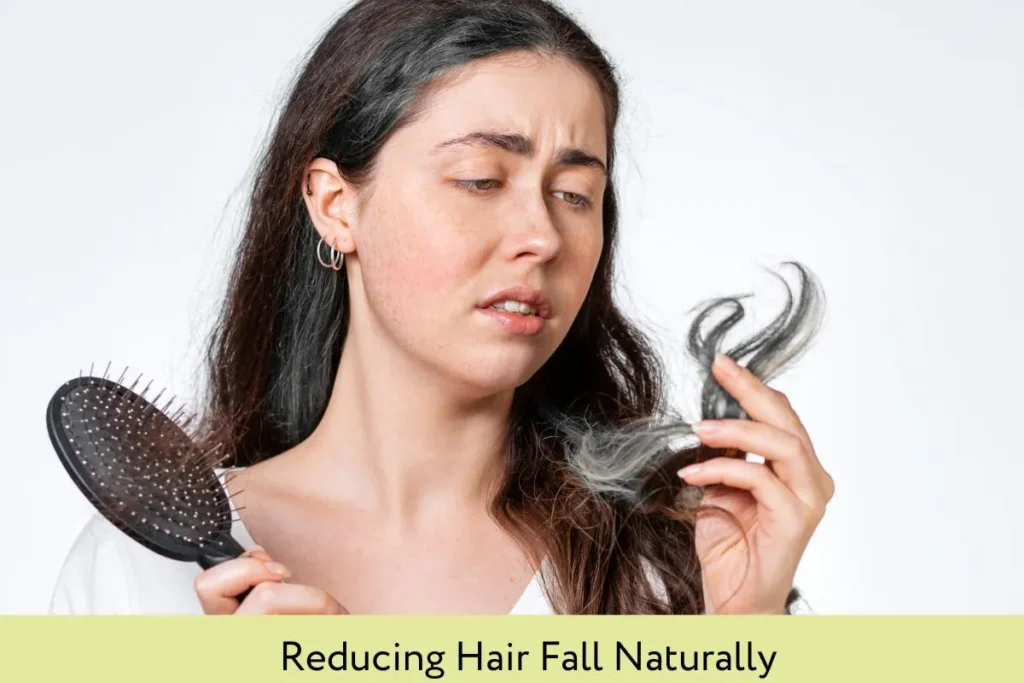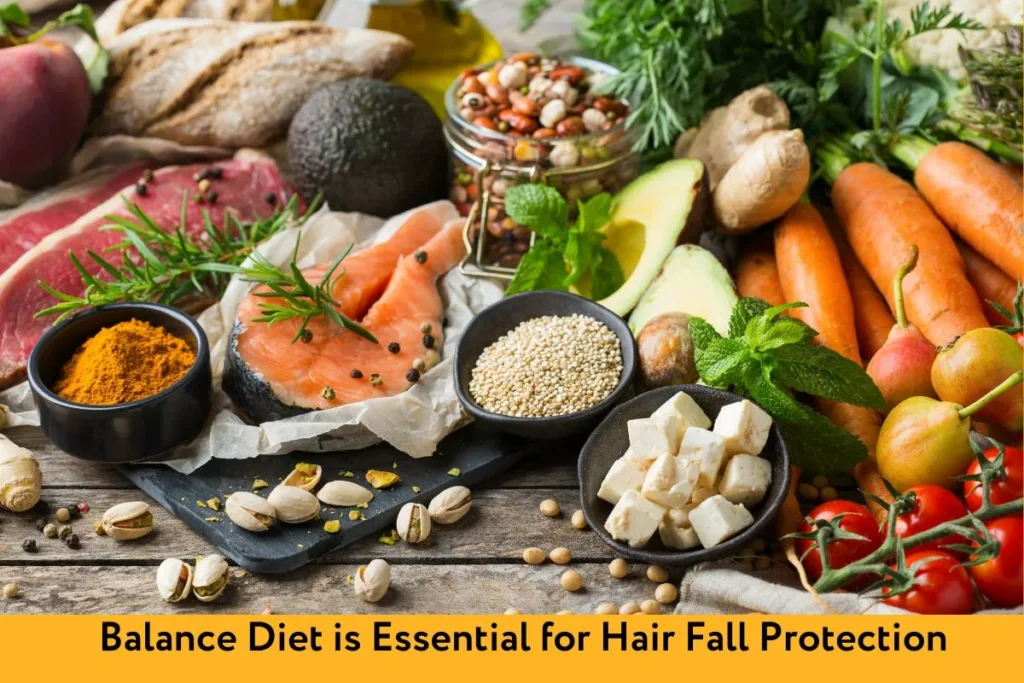Table of Contents
ToggleDiscover Effective Strategies to Combat Hair Fall Naturally
Introduction:
Are you tired of seeing more hair strands in your brush than on your head? Hair fall can be distressing, but the good news is that there are numerous natural methods to combat this common concern. From dietary adjustments to lifestyle changes and herbal remedies, this article will delve into effective strategies to help you regain control over your locks and promote healthier, stronger hair growth.

Understanding Hair Fall:
Before diving into solutions, it’s crucial to understand the underlying causes of hair fall. Factors such as genetics, hormonal imbalances, stress, poor nutrition, and environmental pollutants can all contribute to hair loss. By addressing these root causes, you can effectively tackle the problem and achieve lasting results.
- Nourish Your Body from Within: A well-balanced diet plays a pivotal role in maintaining healthy hair. Ensure your meals are rich in essential nutrients such as protein, vitamins (A, C, D, and E), minerals (iron and zinc), and omega-3 fatty acids. Incorporate foods like fish, eggs, nuts, fruits, vegetables, and lean meats into your diet to provide your hair with the building blocks it needs to thrive.
- Hydrate, Hydrate, Hydrate: Proper hydration is key to keeping your hair and scalp healthy. Drinking an adequate amount of water each day helps maintain hair elasticity and prevents dryness, which can lead to breakage and hair fall. Aim to drink at least eight glasses of water daily to keep your locks luscious and hydrated.
- Gentle Hair Care Practices: Treat your hair with care to minimize breakage and hair fall. Avoid vigorous brushing, especially when your hair is wet, as it can cause damage. Instead, use a wide-tooth comb to detangle wet hair gently. Opt for mild shampoos and conditioners suited to your hair type, and steer clear of harsh chemicals that can strip your hair of its natural oils.
- Scalp Massage for Improved Circulation: Indulge in regular scalp massages to stimulate blood circulation to the hair follicles, promoting hair growth and reducing hair fall. You can use your fingertips or incorporate nourishing oils such as rosemary, peppermint, or coconut oil for added benefits. Spend a few minutes each day massaging your scalp in gentle circular motions to reap the rewards.
- Stress Management: Chronic stress can wreak havoc on your hair health, leading to increased shedding and thinning. Incorporate stress-reducing activities into your daily routine, such as yoga, meditation, deep breathing exercises, or spending time outdoors. Prioritizing self-care and relaxation can help restore balance and vitality to your hair.
- Embrace Herbal Remedies: Nature offers a treasure trove of botanical remedies known for their hair-strengthening properties. Amla (Indian gooseberry), fenugreek, aloe vera, and green tea are just a few examples of herbs that can nourish your hair and scalp. Experiment with homemade hair masks, herbal teas, or infused oils to harness the power of these natural wonders.
- Avoid Tight Hairstyles and Heat Damage: Give your hair a break from tight hairstyles that exert tension on the scalp, as they can contribute to hair breakage and traction alopecia. Limit the use of heat styling tools such as blow dryers, straighteners, and curling irons, as excessive heat can weaken the hair shaft and lead to increased shedding.

Balance Diet Plays Vital Role
Balanced diet rich in essential nutrients is good for maintaining healthy hair and preventing hair fall. Some of the foods that are particularly beneficial for hair health, such as:
- Protein-rich foods like lean meats, fish, eggs, and legumes to support hair structure and growth.
- Foods high in vitamins A, C, D, and E, such as leafy greens, citrus fruits, fatty fish, and nuts, to promote scalp health and hair growth.
- Iron-rich foods like spinach, lentils, and red meat to prevent iron deficiency, a common cause of hair loss.
- Zinc-rich foods such as oysters, nuts, seeds, and whole grains to support hair growth and repair.
- Omega-3 fatty acids found in fatty fish, flaxseeds, and walnuts to nourish the scalp and reduce inflammation, preventing hair loss.
- Biotin-rich foods like eggs, nuts, and sweet potatoes to strengthen hair and promote growth.
- Silica-rich foods such as cucumbers, bell peppers, and oats to improve hair strength and elasticity.
- Water-rich foods like fruits and vegetables to hydrate the scalp and prevent dryness, reducing hair breakage and fall.
By incorporating these nutrient-dense foods into your diet, you can provide your hair with the essential vitamins, minerals, and antioxidants it needs to thrive, resulting in stronger, healthier hair and reduced hair fall.
Conclusion:
Hair fall is a common concern that affects people of all ages and genders. By adopting a holistic approach to hair care and incorporating natural remedies into your routine, you can strengthen your strands, reduce hair fall, and promote healthier, more resilient hair growth. Remember to be patient and consistent with your efforts, as achieving lasting results takes time and dedication. With the right strategies and a bit of TLC, you can enjoy a head full of vibrant, gorgeous locks for years to come.